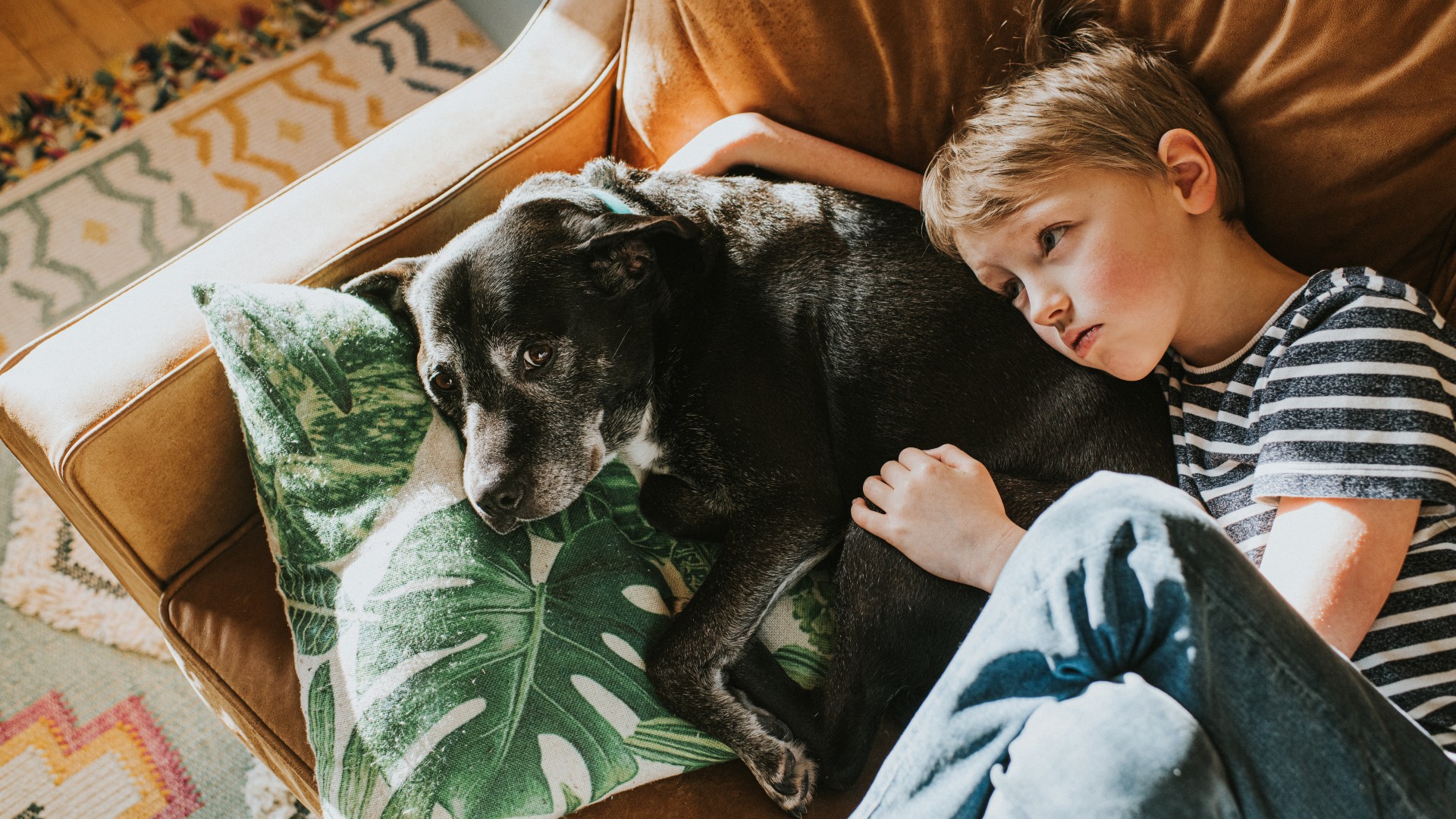Lethargy in dogs: Vet's guide to causes and treatment
Lethargy in dogs can be serious – here's what to do if your dog is slowing down

Lethargy in dogs is something that owners sometimes see. If your dog seems to be lying around more or is reluctant to get up and participate in his normal daily routine, he may be experiencing lethargy. Lethargy is a common sign of many difficult medical conditions and can be accompanied by other symptoms such as your dog not eating, which means it can be tough to know what caused it.
If your dog is lethargic, a trip to your veterinarian is in order for an exam and diagnostic testing. Lethargy is also often accompanied by other symptoms, which can help your veterinarian diagnose the cause of this change in your dog.
In many cases, treating the underlying medical issue will improve or even resolve the lethargy, so your dog can get back to his normal daily routines. Read on to learn more about lethargy in dogs and see what you can do if your dog shows signs of being lethargic.
What causes lethargy in dogs?
Lethargy in dogs is not a medical condition in and of itself. Lethargy is a non-specific symptom, meaning that it can occur with a number of different medical conditions. Lethargy is a sign that there is a problem, and it can be one of the first symptoms pet owners notice at home.
If you’ve noticed that your dog is lethargic, there may be other symptoms occurring as well. It is important to take note of any other symptoms you identify and contact your veterinarian for further advice. Your vet may recommend bringing your dog into the clinic for an evaluation.
What are the symptoms of lethargy in dogs?
Lethargy is fatigue or a lack of energy. Dogs experiencing lethargy may sleep for longer periods than normal and may not participate in their usual activities. They may tire out more quickly on walks or during play.
Some dogs may hide and stop interacting with family members, while others may prefer to stay close to family. You may also notice that your lethargic dog prefers to rest in one area and makes fewer trips to the food and water bowls. It may also be more difficult to encourage a lethargic dog to get up to go outside for walks or trips to the bathroom.
Get the best advice, tips and top tech for your beloved Pets

What other symptoms accompany lethargy in dogs?
Because lethargy is a symptom of so many different medical conditions, there are a whole host of other symptoms that may occur alongside lethargy.
Common symptoms to watch your dog for include loss of appetite, vomiting, diarrhea, weakness, pain, changes in urination or defecation habits, drinking more or less water than usual, or any other changes in health or behavior.
If you notice any other symptoms in addition to lethargy, it’s definitely time for your dog to see a veterinarian for evaluation. Be sure to mention these to your veterinarian as they may help your veterinarian diagnose the underlying cause of your dog’s lethargy.
What should I do if my dog is lethargic?
If your dog is lethargic, the first step is to make note of any other recent changes in health or behavior and contact your veterinarian. Because lethargy is a symptom of an underlying medical condition, your veterinarian will likely recommend bringing your dog into the veterinary clinic for a full evaluation.
Your veterinarian will perform a full head to tail physical examination, and may recommend some additional diagnostic testing such as blood work or radiographs (X-rays). Once the underlying cause of your dog’s lethargy is identified, your veterinarian will be able to prescribe appropriate treatment to help get your dog back on track.

How is lethargy treated?
To treat lethargy, your veterinarian must first diagnose the underlying cause of this symptom. Once the underlying cause of your dog’s lethargy is identified, your veterinarian will be able to prescribe appropriate treatment to treat the condition. This may involve medications, supplements, or even surgical treatment depending on the cause of the lethargy.
The good news is that in many cases, once the underlying cause of the lethargy is diagnosed and treated, the lethargy itself will resolve. If your dog’s lethargy persists after treatment, contact your veterinarian for further steps and advice on your dog’s care.
Can I treat lethargy at home?
Because lethargy is a symptom, rather than an actual medical condition, it can’t be treated by itself. Your veterinarian will need to perform a physical exam and diagnostics in order to diagnose the underlying cause of the lethargy.
Do not attempt to give your dog any over-the-counter treatments, supplements, or home remedies without first consulting your veterinarian. Many of these products can be dangerous to your dog especially if dosed inappropriately. Your veterinarian will advise you on the best course of action to treat your dog’s lethargy once the underlying medical cause has been identified.
Lethargy is a warning sign
Lethargy is a common symptom of many canine medical conditions. You may or may not notice other symptoms associated with your dog’s lethargy. To diagnose the condition causing your dog’s lethargy, it is important for your dog to see a veterinarian in a timely manner.
Your veterinarian will perform a physical examination and diagnostic testing to determine the underlying cause of your dog’s lethargy. Once the underlying medical condition has been diagnosed, your veterinarian will be able to prescribe appropriate treatment that may reduce or even resolve your dog’s lethargy.
Lethargy could be a sign that your dog has fading puppy syndrome. To find out more, have a read of this expert's guide. Or learn about pneumonia in dogs
Dr. Elizabeth Racine is a small animal general practice vet covering all things pet health and wellness. Her special interests include veterinary behavior, nutrition, and internal medicine.
As a freelance writer, Dr. Racine has written content for major companies in the industry such as the American Kennel Club, Merck Animal Health, Bayer PetBasics, Elanco, and CareCredit. In her free time, Dr. Racine enjoys playing trampoline dodgeball, hiking with her beagle Dasher, and spending time with her three mischievous cats.

